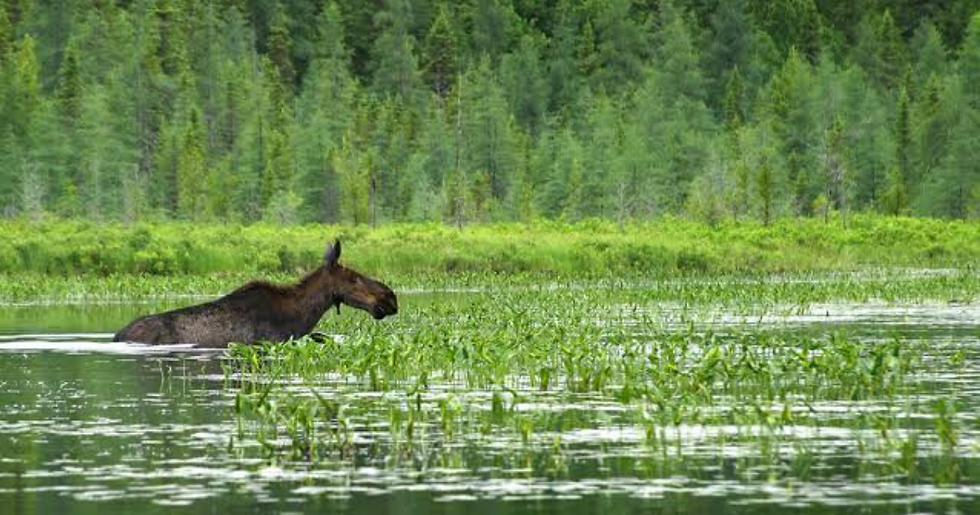OUR WONDERFUL WETLANDS: Guardians of Biodiversity and How We Can Preserve Them
- Youth for Environment in Schools Organization YES-O
- Nov 20, 2023
- 3 min read
Updated: Nov 27, 2023

Wetlands, often overlooked and undervalued, stand as vibrant ecosystems teeming with life and playing a critical role in maintaining ecological balance. In this blog, we embark on a journey to explore the enchanting world of wetlands, unraveling their importance for both plants and animals. Moreover, we'll delve into simple yet impactful ways to champion the cause of wetland preservation, ensuring these vital habitats endure for generations to come.
The Essence of Wetlands

Wetlands are diverse landscapes where water meets land, encompassing areas such as marshes, swamps, and bogs. Characterized by the presence of standing or flowing water, wetlands are unique environments that host an extraordinary variety of flora and fauna. From the tranquil beauty of lily-covered ponds to the vast expanses of coastal marshes, wetlands are essential components of our planet's biodiversity.
Importance for Plants and Animals:
Biodiversity Hotspots

Wetlands are biodiversity hotspots, providing a haven for an incredible array of plant and animal species. They serve as nurseries for many fish and amphibians, offering a safe space for breeding and early development.
Natural Filters

Acting as nature's filtration systems, wetlands purify water by trapping sediments and filtering out pollutants. This cleansing process not only benefits the health of the water within the wetland but also contributes to the overall quality of downstream water bodies.
Carbon Sequestration

Wetlands play a crucial role in mitigating climate change by acting as carbon sinks. The saturated conditions prevent the complete decay of organic matter, leading to the accumulation of carbon in wetland soils. Preserving wetlands helps combat the release of stored carbon into the atmosphere.
Flood Control

Wetlands act as natural buffers against flooding by absorbing excess water during heavy rains or storms. This vital function helps protect nearby communities from the devastating impacts of floods.
Habitat for Migratory Birds
Many migratory birds rely on wetlands as crucial stopover points during their long journeys. These ecosystems offer feeding grounds and shelter, supporting the survival of numerous bird species.
The Threats to Wetlands

Despite their immense ecological value, wetlands face numerous threats, including habitat destruction, pollution, and climate change. Drainage for agriculture, urban development, and pollution from industrial runoff are among the primary culprits contributing to the decline of wetland ecosystems.
Preserving Our Precious Wetlands

Raise Awareness

Spread awareness about the importance of wetlands within your community. Organize educational sessions, workshops, or events to highlight the value of these ecosystems and the threats they face.
Participate in Restoration Projects

Get involved in wetland restoration initiatives. Many organizations and local communities undertake projects to restore degraded wetlands, providing opportunities for hands-on involvement.
Responsible Recreation

If you enjoy outdoor activities near wetlands, practice responsible recreation. Stay on designated trails, avoid disturbing wildlife, and follow any posted guidelines to minimize your impact.
Support Wetland Conservation Organizations

Contribute to or volunteer with organizations dedicated to wetland conservation. These groups often work on research, habitat restoration, and policy advocacy to protect wetlands.
Responsible Land Use

Encourage sustainable land use practices that prioritize the preservation of wetland areas. Support policies that limit draining or filling wetlands for development purposes.
Reduce Pollution

Take steps to reduce pollution in your daily life. Properly dispose of waste, minimize the use of harmful chemicals, and support policies that regulate industrial discharge into water bodies.
Advocate for Wetland Protection

Use your voice to advocate for wetland protection at the local, regional, and national levels. Support policies and initiatives that prioritize the conservation of these invaluable ecosystems.
Conclusion: A Pledge for Preservation

Our wonderful wetlands stand as testaments to the beauty and complexity of nature. By understanding their significance and actively participating in their preservation, we become stewards of these vital ecosystems. Let us embark on a collective journey to safeguard our wetlands, ensuring they continue to thrive as essential hubs of biodiversity, natural filtration, and climate resilience. In our commitment to preserving these natural wonders, we forge a path towards a harmonious coexistence with the delicate balance of our planet's ecosystems.




Comments